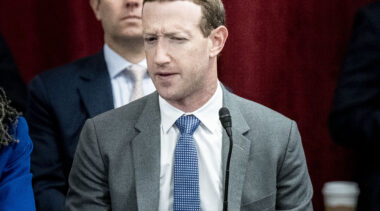Policy Briefs
View all policy studies.-
Transparent K-12 open enrollment data matters to parents, policymakers and taxpayers
A total of 16 states have strong statewide cross-district open enrollment laws, while 13 states have strong statewide within-district open enrollment laws.
-
Reforming environmental litigation
There is growing bipartisan support that the NEPA process, as it has evolved since the legislation’s enactment in 1970, has gone too far, placing obstacles and delays in the way of needed energy and transportation infrastructure projects.
-
Is private equity a public financial hazard?
Private equity funds lack clear return and risk metrics, making it hard to assess performance before investments are redeemed, often a decade or more after the initial investment.
-
Getting cannabis legalization right in Hawaii
Hawaii may be poised to become the 25th state to legalize the recreational use of cannabis for adults aged 21 and over.
-
Ibogaine treatment for opioid use disorder
Policymakers should consider ibogaine as a potential alternative treatment for opioid use disorder.
-
The effects of cash bail on crime and court appearances
Research suggests that curtailing the use of monetary release conditions among low-risk defendants would not result in dramatic drops in court attendance or increased risk of reoffending.
-
A policy framework for personal psychedelics licenses
Psychedelic licenses for consumers have advantages over the current approach in two U.S. states that rely on professionals to dispense and facilitate services.
-
The implications of federal cannabis rescheduling
While the optimal solution would be to remove cannabis from the list of controlled substances entirely, moving it to Schedule III presents both immediate and long-term advantages over its current Schedule I designation.
-
Grading every state’s telehealth laws
While many state telehealth laws changed during the COVID-19 pandemic, some of those reforms have expired and many best practices that would improve health care and help patients still need to be implemented.
-
The case for interstate marijuana commerce right now
Pathways to establishing an interstate marketplace for marijuana.
-
FTC’s lawsuit against Facebook is a test case for path-breaking interpretation of antitrust policy
If the FTC can convince the courts that Facebook’s allegedly anticompetitive behavior has damaged the market, the default solution is nothing short of the dismantling of the company.
-
The importance of North Carolina’s ports and how to improve them
This policy report examines the roles ports play in North Carolina’s economy, as well as how they are operated.
-
Five actions transit agencies should take in the next two years
With transit ridership down, most large transit agencies will likely face a severe financial cliff in late 2024 when federal stimulus funds have been depleted.
-
California’s Age-Appropriate Design Code Act threatens the foundational principle of the internet
The AADC’s age assurance requirement erects onerous barriers that would discourage internet use and chill protected speech.
-
Five actions transit agencies should take immediately
U.S. transit agencies need to make a series of changes that will reform their boards, contract out service, and better serve riders.
-
Tolling rural Interstate corridors
Using tolling to refinance the reconstruction of rural highways is the most realistic option to rebuild and expand these important roadways.
-
Video Game Loot Boxes: Anatomy of a Moral Panic
There is no evidence to suggest that loot box spending is excessive among adults or adolescents or that it is responsible for any widespread harm.
-
Using DBFOM public-private partnerships benefits drivers, states and transportation contractors
Strategic use of design-build-finance-operate-maintain public-private partnerships for major transportation projects considerably expands the total money available for transportation infrastructure.

















